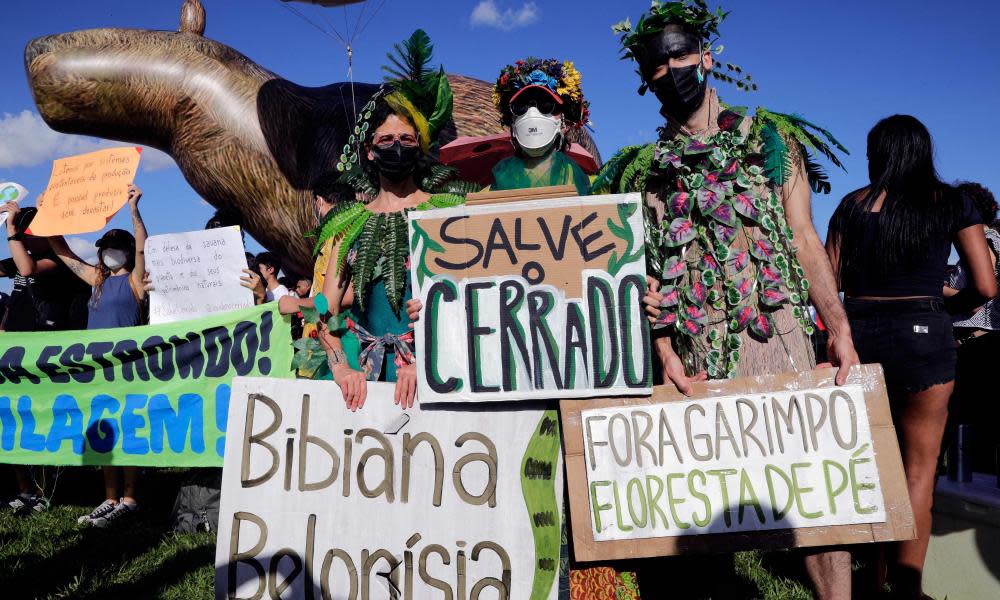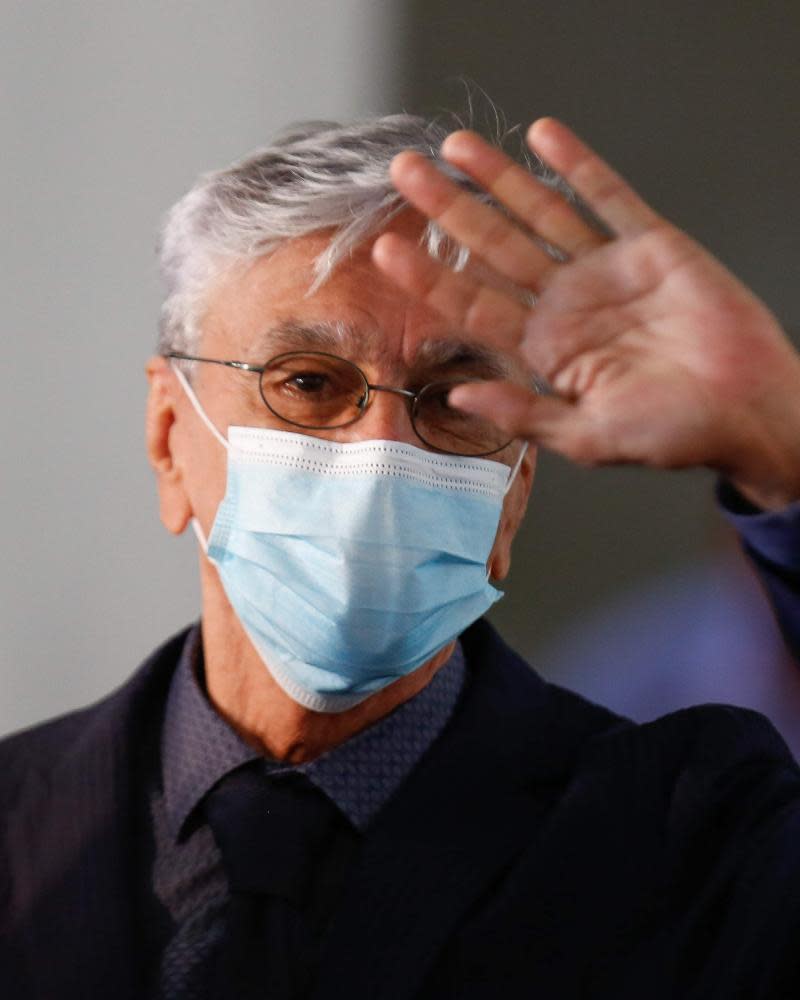Thousands protest against Brazil’s ‘death combo’ of anti-environment bills

Thousands of demonstrators have gathered in Brazil’s capital after one of the country’s leading musicians, Caetano Veloso, called a major protest to denounce what environmentalists call a historic assault on the Brazilian environment under President Jair Bolsonaro.
The “Ato pela Terra” (Stand for the Earth) demonstration was held in Brasília to oppose what activists call a “death combo” of five environment-related bills being considered by Brazil’s congress.
The senate is expected to vote on three of those bills in the coming weeks, while two are expected to face votes in the lower house.
If approved, the proposals would greenlight commercial mining on indigenous lands and jeopardize the land rights of tens of thousands of indigenous people; loosen environmental licensing requirements and regulations over pesticide use; and boost land grabbers and illegal loggers in the Amazon, where deforestation has soared under Brazil’s far-right president.
“It’s ecocide,” said Janaína Fernandes, a 49-year-old jeweller who was among those who had turned out to voice anger at the assault on Brazil’s environment that followed Bolsonaro’s 2018 election.
Related: Deforestation in Brazilian Amazon hits highest annual level in a decade
Veloso, who was joined at the rally outside congress by celebrities including the rapper Emicida, the actor Lázaro Ramos and the singer Daniela Mercury, urged citizens to fight legislation that posed “a clear threat to the environment”.
“I think it’s time for us to get out on to the streets and to show our faces,” said the 79-year-old songwriter.
“I’m optimistic about the future of Brazil. That’s to say, I’m taking action to foster something new here, something that might enlighten the world,” Veloso told the Guardian. “But right now it’s hard to cling on to this mindset.”
Addressing members of congress before the rally, Veloso said Brazil had reached its most critical environment crossroads since the return of democracy in the 1980s. “Amazon deforestation is out of control … our international credibility has been shattered,” he said, urging politicians to reject the five bills.

Ana Carolina Tessmann, a 31-year-old teacher, said she was marching against “the worst and cruelest” moment in Brazilian history. “I understand that it is my obligation as a citizen to actively take part in these protests,” Tessmann said.
Protesters hope to convince lawmakers to reject or modify the bills – which have the support of the powerful agribusiness lobby – to reflect concerns over the climate emergency and the traditional populations affected by environmental destruction.
“We want to tell [congress] that we will not accept this … If some of these bills pass, they will spell our destruction,” said Txai Suruí, 25, an indigenous activist from Rond?nia, an Amazon state that is a deforestation hotspot.
Marcio Astrini, an environmentalist who is one of the event’s organizers, warned the five pieces of proposed legislation could have devastating consequences for Brazil’s environment and the global climate.
“The protest’s message is: do not vote for these bills in their current form because they are a disaster,” said Astrini, the executive director of the Climate Observatory.
“They doom the country, they doom the environment, they doom our international reputation and they put the survival of the Amazon – and thus the Paris agreement targets – at risk.”

Environmentalists fear that if the bills become law, they will enshrine Bolsonaro’s anti-environmental policies into law for years to come – even if he fails to secure a second term in this year’s election.
Polls suggest Bolsonaro will lose October’s election to his leftwing rival, the former president Luiz Inácio Lula da Silva, having appalled many voters with his anti-scientific handling of a Covid pandemic, which has killed more than 650,000 Brazilians. But by then, Astrini warned, long-lasting damage to the environment might already have been done.
“Even if we change the president and we change Brazil’s environmental stewardship, these [new] rules would make it very hard to fight environmental crime,” he said.
“It would be like taking all of the harm being done by the government today, and ensuring it will continue causing harm and deforestation for years and decades to come.”
Bruna Brelaz, the 27-year-old head of Brazil’s national union of students, urged the country’s youth to make its voice heard in this year’s election. “Register to vote and get Bolsonaro out,” she told demonstrators. “This is the calling of our generation – and it is this generation that will get rid of Bolsonaro and transform this country.”